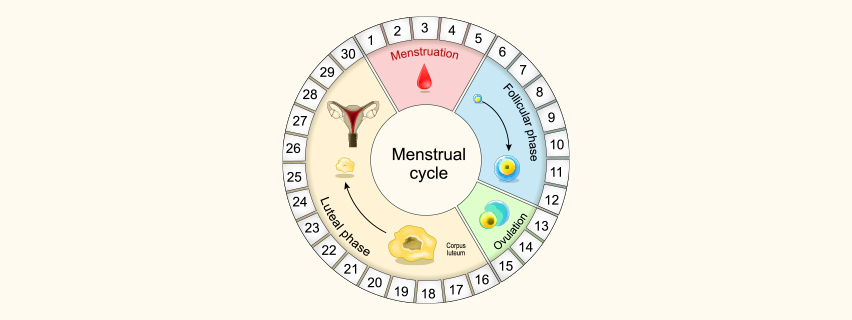When Should a Pregnant Woman Take Folic Acid?
Folic acid stands out as an important supplement during pregnancy. There may be hundreds of essential nutrients, but always keep this one at the top of the list. It is important to understand how to add folic acid to your diet during pregnancy, as it can have a significant impact on the development of a baby. This article has a lot of important information on the right dosage, the right timing, and the importance of folic acid for pregnant women.
Understanding Folic Acid
Folic acid plays a vital role in cell growth. It promotes DNA synthesis and tissue formation. It is a synthetic form of folate (Vitamin B9), a water-soluble B vitamin. Folate mostly occurs in foods. Leafy vegetables, some fruits, legumes, etc., are rich sources of this vitamin. For anyone who is planning a pregnancy, folic acid becomes an essential supplement throughout the period. The right dose of folic acid taken in a timely manner can reduce many complications and birth defects.
Most Critical Timing: Before Pregnancy
Your doctor may prescribe that you take folic acid before conception occurs. Consumption of this vitamin during pregnancy is beneficial, but the highest impact is before pregnancy occurs. It is necessary to start taking this a few weeks before pregnancy for better fetal development. This is all part of a planned pregnancy when you reach out to your doctor for advice. Here is why this supplement matters before conceiving:
NTDs (Neural Tube Defects) may develop between 21 to 28 days after conception. This is a critical time for fetal development. The neural tube forms during this period, and there is little chance that a woman would feel its formation. Many don’t even realize that they are pregnant. By the time pregnancy is confirmed, which is mostly after 4 to 6 weeks after conception, this critical window is closed. Neural tube formation is over, and nothing can be done. Often, nothing major occurs, but in some cases, there can be irreversible birth defects.
That is why any woman who is in the process of conceiving a child must focus on a folic acid supplement. The Centers for Disease Control and Prevention (CDC), the World Health Organization (WHO), and the American College of Obstetricians and Gynecologists (ACOG) all advise beginning folic acid supplementation at least one month before conception. A dose of 400–800 micrograms (mcg) is recommended.
Folic Acid During Pregnancy

After the preconception period passes, the phase of the three trimesters begins. During these phases, crucial changes happen that lead to healthy baby development. Folic acid supplements can be given during these trimesters. Here is some info on how folic acid can help the fetus develop well:
First Trimester
One of the most crucial stages is where the neural tube develops and closes by week 6 max. Major organs are formed, and the foundation of brain development begins. At this stage, most pregnant women are prescribed up to 600 mcg of folic acid daily. This is to prevent NTD-affected pregnancy. Sometimes, dosages are increased up to 4000 mcg daily, depending on your current status as assessed by the doctor. Even if you missed folic acid before pregnancy, it is recommended to start taking it as soon as pregnancy is confirmed.
Second Trimester
During this trimester, fetal growth increases, along with blood volume. A lot of major changes happen during this phase. The doctor may recommend you take 600 mcg of folic acid during this period. The risk of neural tube defects has passed; now, the supplement will support cell division, tissue growth, and DNA replication.
Third Trimester
The baby grows rapidly in the final trimester, and the brain develops at a faster rate. The continuation of folic acid is essential for neurological development and organ maturation. The intake will remain the same as in the previous trimester. With adequate amounts, the baby will continue to develop without complications.
Also Read – Guiding You through Each Trimester of Your Pregnancy
Folic Acid vs. Multivitamins During Pregnancy
Sometimes, doctors will prescribe you multivitamins, which also contain folic acid. This entirely depends on your health factors and diet. Things begin with prenatal vitamins. Along with folic acid, other essential nutrients like iron, Vitamin C, vitamin B12, and Zinc are also introduced. Thanks to multivitamins, you don’t have to take multiple tablets. Some are combinations of everything.
They are designed to meet nutritional deficiencies during the pregnancy period. A typical dose of 600 to 800 mcg is provided, depending on the woman’s health. In some cases, the doctor can prescribe folic acid separately along with multivitamins. Women with high-risk factors will have to take more doses. Here are some food sources of folate if you are planning to take it in a natural form:
- Broccoli, citrus fruits, avocados, asparagus, and Brussels sprouts
- Dark leafy green vegetables like spinach, kale
- Fortified grains and cereals
- Some bread and pasta also contain folic acid, which can be added to the diet
Overall, it is recommended to have a balanced diet and maintain a healthy weight. Go for constant screening and keep track of baby development throughout every trimester.
Now you understand the importance of folic acid and why it is the most important supplement during pregnancy. Folic acid plays a vital role in baby growth and development, starting from preconception to the final delivery date. A daily intake of 400 to 800 mcg, depending on your diet and health, is crucial. Having a multivitamin supplement along with this is also beneficial. A balanced diet, healthy weight, and low stress are all important. You must not just rely on folic acid supplements; it is just one part of the crucial dietary system. Dosage, timing, and frequency—everything—will be decided by the doctor. In case of some risk, the doctor may recommend more supplements or medicine. The goal here is to support a healthy pregnancy and a healthy baby.
Frequently Asked Questions
What if I start taking folic acid too late?
If there is no complication with the neural tube, then you don’t have to worry. You can start folic acid at any point.
Can a high dose of folic acid be risky?
Folic acid is mostly considered safe, but you must avoid doses above 1000 mcg daily. It must be taken under a doctor’s supervision. Excessive vitamin B12 in your body can lead to other concerns.
What if folic acid supplements cause nausea?
If you are having side effects, then talk with the doctor. You may be asked to take it before food or before going to bed.













































Leave a comment